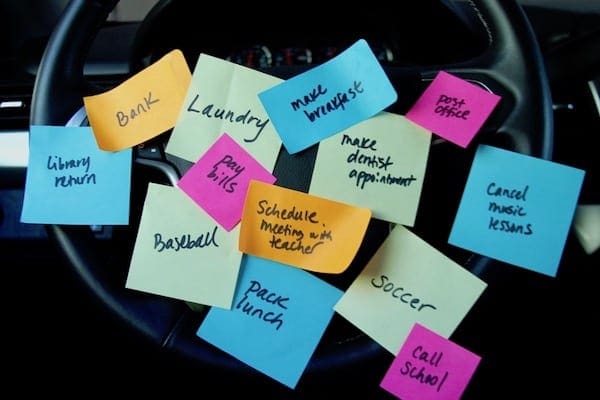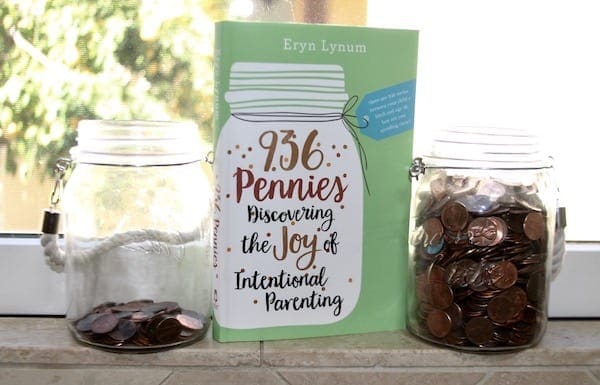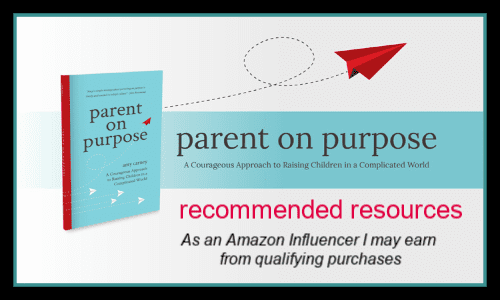We must stop being so productive in our parenting today so that our children can learn how to be productive in their own lives.
In the morning, the productive parent…
- Wakes the child up.
- Makes the breakfast.
- Goes back in to wake sleeping beauty again.
- Packs the lunch.
- Throws in the laundry.
- Cleans up after breakfast.
- Reminds Johnny to take his washed and folded PE uniform and his library book which is due.
- Off to school, he goes.
It’s a good thing he has a cell phone so he can text Mom when he realizes she forgot to remind him to bring his math book.
And because the productive parent wouldn’t want him to be without what he needs, she runs it to school.
And the scenario goes on.
Is our productive parenting hindering our children from becoming productive adults?
One of our goals as parents should be to raise a confident, responsible, and independent adult who can capably live in the real world one day without us. It’s time to recognize if we are stealing opportunities from our children to grow into the productive people they are meant to be.
Here are 5 Reasons We Need to be a Less Productive Parent
1. Our kids don’t know how to fail
We can’t stand to watch our offspring face disappointment and hardship, so we do all we can to keep our babies from feeling discomfort. Failure doesn’t feel good, and we want our children happy, so we shield and protect our son or daughter from anything that may make them feel uncomfortable.
However, as adults, we have forgotten that failure is a necessary part of life. How will we ever know when we’ve succeeded if we’ve never been allowed to fail?
Most of our parents didn’t pick up the pieces when things fell apart for us. We learned how to do that ourselves. Why, then, aren’t we allowing our children the same space to learn and grow from negative experiences?
2. Our kids don’t know how to problem-solve
For my book Parent on Purpose, I interviewed several university deans, professors, teachers, and employers about the differences between young adults today and past generations. They unanimously said that adolescents don’t know how to solve problems for themselves.
Who’s to blame for this? Siri, Alexa, and hovering parents get my vote.
No matter who’s to blame, we as parents have to be adamant about giving our children the confidence and space to figure out solutions for themselves. Only then will they get to experience the consequences of their decisions—good and bad.
How can we empower our sons and daughters to make choices for themselves instead of relying on us or technology to do the work for them?
3. Our kids don’t know how to fend for themselves

My viral post on the 8 Things You Should Stop Doing For Your Teen touched on how we need to purposely raise an adult instead of big kids who leave our home clueless instead of capable.
It’s up to us parents to let our children become productive instead of us continuously producing for them. It is the rare child who will ask to wake themselves up, do their laundry, make their breakfast, fill out their paperwork, and the list goes on. Children of all ages like having things done for them, so you must take the lead in teaching them what they need to know.
As parents, we must balance nurturing our children and teaching them life skills. Don’t mistake doing everything for your teen for love. Sometimes, the most loving thing you can do for your child is to say no to bringing that forgotten item to school.
4. Our kids don’t know how to interact with other humans
Technology is ruining childhood if you haven’t figured that out already. We parents must have boundaries and rules for devices so our children grow up learning that their iPhone is an asset, not a part of their anatomy.
We must carve out space in our children’s lives for them to be with people of all ages in person without a screen to hide behind. The group of professionals I interviewed also agreed that young adults are very unsure of themselves in social settings today. They don’t know how to look another person in the eye or have a casual yet meaningful face-to-face conversation.
It’s up to us parents to create opportunities for our children to develop lifelong relationships and communication skills, which will not happen using Snapchat.
5. Our kids don’t know how to wait for anything
I blame Amazon’s brilliance and uber-productive shopping experience. Why wait for anything when you know you can quickly click a few buttons on this website and have your desire in hand tomorrow?
The concept of waiting for something you want or even need is lost on the younger generation.
It’s up to us to teach our children how to wait.
- To wait for items that they want.
- To wait in lines.
- To wait to do things that aren’t appropriate for their age yet.
With our over-productive parenting, we are creating a generation of kids who are afraid to fail, unable to problem-solve, unwilling to help around the house, uncomfortable in the presence of other humans, and don’t want to wait for a thing.






